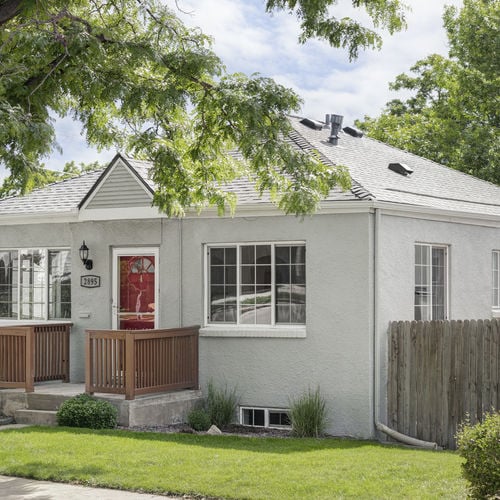Hi there! I’m Lauryn Dempsey, a real estate agent serving Arvada, Colorado, and the surrounding areas. As a Navy veteran with years of experience in real estate, I understand the nuances of buying and selling homes—especially when it comes to complex situations like earnest money deposit and what happens when a buyer decides to back out of a deal.
Whether you’re buying your first home, selling a property, or navigating the delicate process of divorce real estate planning, understanding earnest money and how it works can make a huge difference in your peace of mind. In this article, I’ll break down what earnest money is, what happens if a buyer backs out, and how you can protect yourself during the process.
Table of Contents
- What is Earnest Money?
- What Happens to Earnest Money if the Buyer Backs Out?
- 2.1 Earnest Money is Returned to the Buyer
- 2.2 Seller Keeps the Earnest Money
- 2.3 Negotiation or Mediation
- How to Protect Yourself and Your Earnest Money
- 3.1 For Buyers
- 3.2 For Sellers
- Why You Can Trust Me
- Key Takeaways
- Frequently Asked Questions (FAQs)
What is Earnest Money?
Earnest money is a deposit made by the buyer to demonstrate serious intent to purchase a property. This money is typically placed in an escrow account held by a third party—such as a title company—and is usually between 1-3% of the home's purchase price.
For sellers, earnest money serves as a reassurance that the buyer is committed to moving forward with the deal. For buyers, it’s an assurance that they can fulfill the terms of the sale. However, it’s important to understand what happens to earnest money if something goes wrong, especially if a buyer decides to back out of the deal.
What Happens to Earnest Money if the Buyer Backs Out?
If the buyer decides to back out of the deal, the fate of the earnest money will depend on the reason for the cancellation and the terms outlined in the purchase agreement. Here are the three most common scenarios:
Earnest Money is Returned to the Buyer
If the buyer backs out for a valid reason outlined in the purchase agreement’s contingencies, they are typically entitled to have their earnest money returned. Common contingencies include:
- Inspection Contingency: If the home inspection reveals issues that the buyer is unwilling to accept, they can cancel the deal and recover their earnest money.
- Financing Contingency: If the buyer is unable to secure a mortgage, they may back out without losing their earnest money.
- Appraisal Contingency: If the home doesn’t appraise for the agreed-upon price, the buyer can cancel the deal and receive their earnest money.
As long as the buyer follows the terms of the agreement and cancels the deal within the allowed timeframe, they should be able to get their earnest money back.
Seller Keeps the Earnest Money
If the buyer backs out for reasons not covered by the contingencies—like a change of heart or failure to meet specific obligations—the seller may be entitled to keep the earnest money. The earnest money acts as compensation for the seller’s time and potential lost opportunities to sell the property.
Common reasons the seller may keep the earnest money include:
- The buyer fails to meet deadlines or contractual obligations.
- The buyer backs out for reasons not covered by contingencies.
- The buyer cannot secure financing but has no financing contingency in the contract.
It’s important for both parties to clearly understand the contingencies in the agreement to avoid disputes over earnest money.
Negotiation or Mediation
Sometimes, things are not so clear-cut. If the buyer and seller can’t agree on who should keep the earnest money, they may need to go through a negotiation or mediation process. This might happen if the buyer’s reason for backing out falls into a gray area, or if the parties can’t reach an agreement on the next steps.
In these situations, I work closely with my clients to help negotiate a fair resolution, or I can refer them to legal professionals or mediators who specialize in real estate disputes.
How to Protect Yourself and Your Earnest Money
No matter whether you're a buyer or a seller, it’s important to take steps to protect your interests when it comes to earnest money. Here are some tips:
For Buyers:
- Know Your Contingencies: Make sure you understand all the contingencies in your purchase agreement, as these clauses will determine whether you can get your earnest money back.
- Act Quickly and Within the Terms: If you need to back out, do so within the timeframes outlined in the agreement to avoid losing your earnest money.
- Consult a Real Estate Attorney: If you're unsure about your rights or obligations, consulting a real estate attorney can give you peace of mind and help ensure you're not taken advantage of.
For Sellers:
- Be Clear About Contingencies: When reviewing the purchase agreement, make sure you understand all contingencies to avoid future misunderstandings or disputes. In Colorado, it’s near-impossible for a seller to terminate a contract.
- Know Your Rights: Familiarize yourself with Colorado’s laws regarding earnest money and ensure you follow legal protocols if the buyer backs out.
Why You Can Trust Me
As a Navy veteran and a dedicated real estate agent in Arvada and beyond, I’ve helped hundreds of buyers and sellers navigate the complexities of real estate transactions. I specialize in divorce real estate planning, which often involves delicate negotiations and understanding the finer details of financial agreements.
With my background in real estate and my commitment to serving my community, I provide my clients with expert guidance to ensure that their interests are always protected—whether it’s regarding earnest money or other aspects of a real estate transaction.
Key Takeaways
- Earnest Money is a deposit made by the buyer to show commitment to a real estate transaction. It typically ranges from 1-3% of the home’s purchase price.
- If the buyer backs out for reasons covered by contingencies (like inspection issues or financing problems), they are generally entitled to get their earnest money back.
- If the buyer backs out for reasons not covered by contingencies (such as a change of heart), the seller may keep the earnest money as compensation.
- Buyers and sellers can protect themselves by clearly understanding the contingencies in the agreement, acting quickly, and consulting with professionals when needed.
FAQs
1. Can I get my earnest money back if I change my mind about buying the house?
If you back out of the deal for personal reasons not covered by the contingencies, you may lose your earnest money. It’s important to understand the contingencies in your agreement before making such a decision.
2. What happens if the buyer backs out after the inspection?
If the inspection reveals serious issues with the property, you may be able to back out of the deal and receive your earnest money back—provided that the inspection contingency is in your contract.
3. If I don’t have a financing contingency, can I get my earnest money back?
Without a financing contingency in place, you may not be able to recover your earnest money if you back out due to financing issues. This is why it’s crucial to have contingencies that protect you if something goes wrong.
4. How can a seller keep earnest money?
A seller can keep the earnest money if the buyer fails to fulfill their contractual obligations or backs out for reasons not covered by contingencies.
5. Can I negotiate the return of earnest money?
Yes, in some cases, buyers and sellers can negotiate the return or forfeiture of earnest money, especially if both parties can’t agree. Mediation or legal intervention might be necessary if an agreement can’t be reached.
If you are looking for daily insight and tips on today’s market, follow Lauryn Dempsey on LinkedIn. If Lauryn can help you strategize your next steps in real estate in the Denver Metro Area or elsewhere across the U.S., please book a call!



